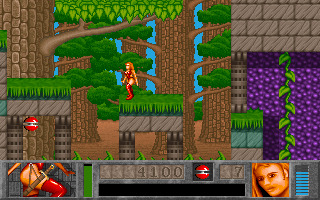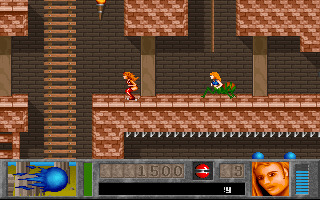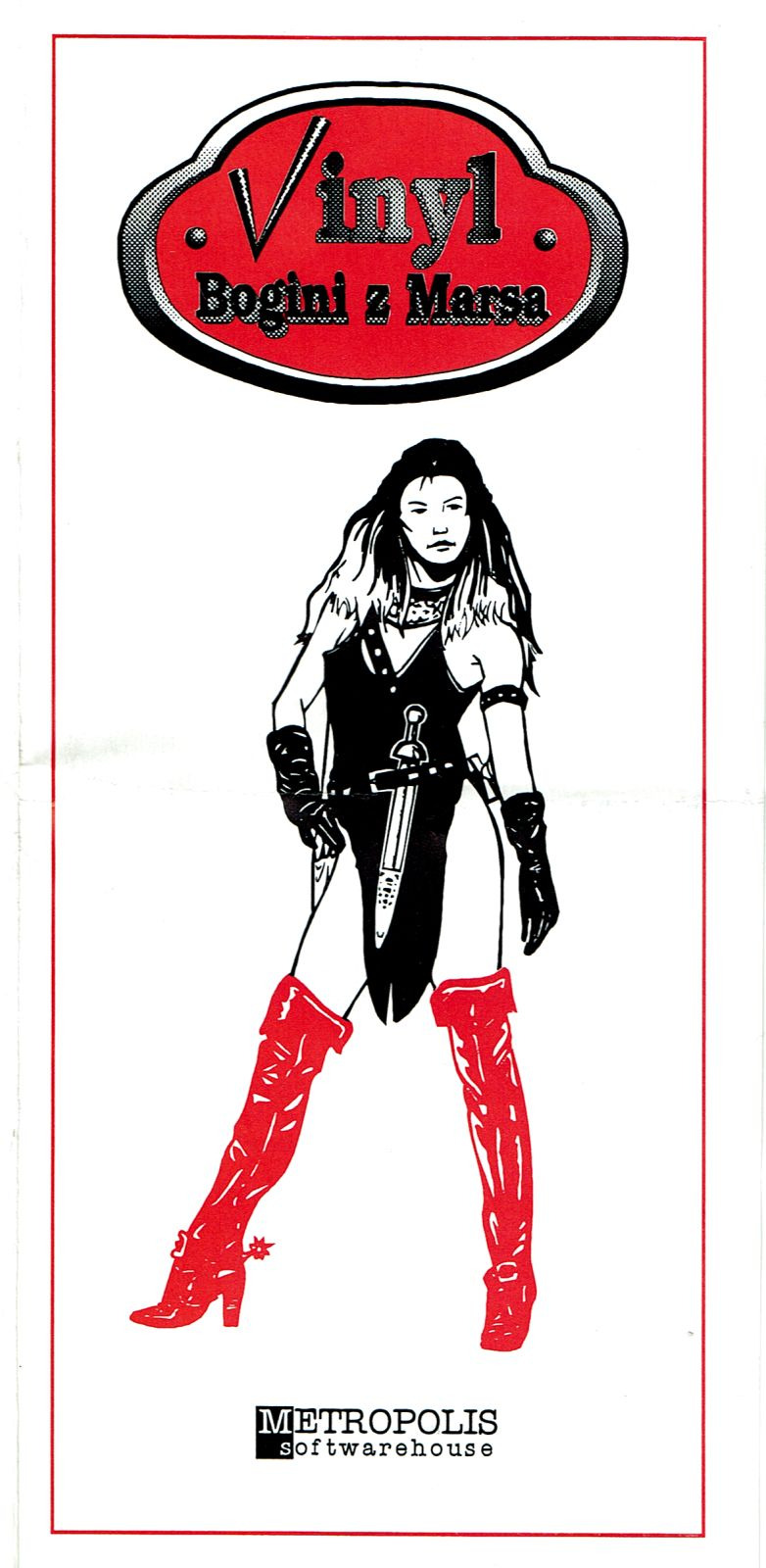#six pound sledge studios
Text
Vinyl Goddess from Mars - Unregistered Registered Version (DOS, Six Pound Sledge Studios, 1995)
A Jill of the Jungle-esquer platformer set in the year 200,000,000,000. You can play the registered version in your browser here.
Edit: just realized this is the full version.





#internet archive#in-browser#dos#dos games#retro gaming#shareware#game#games#video game#video games#videogame#videogames#16 bit#16 bit art#16 bit games#scifi#sci fi#science fiction#1995#1990s#90s
10 notes
·
View notes
Text
[Review] Jill of the Jungle / Onesimus / Vinyl Goddess from Mars / Xargon (DOS)

I never played much DOS shareware but it’s still oddly nostalgic! Also, Jill is just a good game.
I’ve played all these on a stream before but when my pal Lifeforce picked Jill for the monthly retro game club, I relished the chance to try it again and play the related games more thoroughly. Jill may seem basic now but it’s well designed, varied, and has a ton of charm.
Hearing the digitised voice call out “YEAH” when you pick up a key, so cheesy. Transforming into a fish, a frog, or a metal-as-heck fiery bird, very cool. Navigating the caverns, wilderness, or castles, it’s good clean fun. Jill is a classic of its time, a bit experimental (each of the three episodes has a different approach to the hub between levels), and full of silly self-promotion for Tim Sweeney and Epic MegaGames, as they were called long before Gears of War and Fortnite.
As part of exploring the larger Jill universe, I then played Onesimus: A Quest for Freedom. Built on the Jill engine, I figured I was in for more Jill-style action; in fact, all of its levels are recycled from the three Jill episodes (apart from I think the intro, and the Jill 3-style top-down map screen). In all it’s more levels than any individual Jill episode, but in an effort to keep things more realistic they’ve cut the transformations and changed some of the enemies. For example, instead of a demon you’re now sometimes accosted by a shirtless bandit... although he still flies and shoots fireballs. There’s also still an “ice palace” level. It’s supposed to be an adaptation of the story of an escaped slave as told in the Bible’s book of Philemon, and there’s lots of text popups taken from the book, but they don’t really relate to the action. It’s at least got the novelty of being one of the rare Christian/Bible games that are actually good, but it’s not worth playing over Jill itself.
Six Pound Sledge Studios at one point pitched Epic on a sequel to Jill. Epic passed on it, but SPSS finished the game anyway and released it with a new skin. Vinyl Goddess from Mars (the title a play on the unrelated adventure game Leather Goddesses of Phobos) has a schlocky sci-fi theme, complete with a heavier focus on the exploitation aspect of its heroine (not that Jill was entirely innocent of this). I judge it as a decent follow-up to Jill, expanding on its weapon and keyhunt concepts while pouring on more combat, secrets, and collectibles. It’s a fun, action-packed take compared to Jill’s slightly more deliberate style, although the level designs are a bit too sprawling and it pushes the system a little far at times as the abundance of sprites cause slowdown. It’s got top-down map segments but like in Jill 3 itself they don’t add much to the experience, and there’s no transformations at all. Still, I had a good time but wouldn’t dream of setting the game any higher than Easy mode.
I finished up by trying Xargon (out of release order, oops). It was Epic’s own follow-up to Jill, albeit without Tim Sweeney. It’s very similar in structure to Jill (especially 3, as again there’s a top-down map) but with a bunch of new systems bolted on: weapon upgrades that make your default feel weak, a shop that unbalances the game design, and a greater focus on story that’s pretty unremarkable. The sci-fi/fantasy setting is fun... but it’s just not the classic Jill was. There’s a lot more clumsy combat, Malvineous Havershim despite having a cool name is a boring protagonist, and the more open level designs demand so much backtracking and aimless wandering for keys. The graphics are more detailed and colourful but this comes at a heavy cost, as the slowdown is even worse than Vinyl, and its sluggishness really hurts the playability. After the game unfortunately locked up for some reason near the end of the second episode (of three, as seems to be common shareware practice) I decided I’d rather not return to my earlier save point, and dropped it there.
What this experience taught me is that extra bells and whistles are no substitute for good game design. Jill’s simplicity is its strength, and even within its limitations there was lots of room for iteration and experimentation to give you variety in gameplay. The attempts to follow it up in Vinyl and Xargon add a lot of “stuff” but end up feeling blander because you’re more often doing the same thing, and they go too far causing technical drawbacks to performance. This was a very instructive comparison to me, and for that reason they’re all worth trying out at least, but Jill is the keeper here (not that the other games shouldn’t be preserved, of course they should).
#jill of the jungle#epic megagames#vinyl goddess from mars#six pound sledge studios#xargon#dos#review#onesimus
6 notes
·
View notes